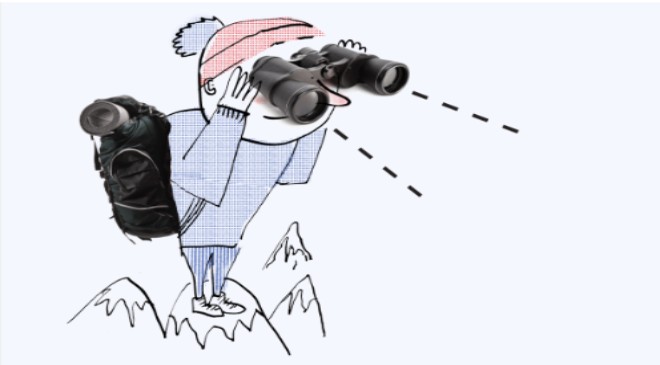Here’s what to do if you see “SSSS” printed on your boarding pass.

If you already think airport security is a hassle, you better buckle up if you spot “SSSS” printed on your boarding pass. The dreaded designation stands for Secondary Security Screening Selection, and it means your airport security experience is about to get a lot more intense. When you’re tagged for SSSS, you’ll have to undergo an extra security screening, and it can add anywhere from a few minutes to half an hour — or more — to the whole security process. Here’s everything you need to know about SSSS.
Also Read– Leave the sweatpants at home. Why we need a dress code for flying.
What is SSSS?
Secondary Security Screening Selection, or SSSS, is a designation by the Transportation Security Administration (TSA) that flags passengers for extra security screening. SSSS can happen on any flight to, from, or within the U.S., including inbound international flights.
If you spot those four letters on your boarding pass, you may be taken aside by a TSA officer during the regular airport security screening process and subjected to additional searches, whether that’s in your bag or on your person.
Perhaps more commonly, you’ll be taken aside during the boarding process, where an agent will ask you to unpack your personal item and carry-on bag for a thorough manual search. Your electronics might be swabbed and tested (be prepared to take off any cases), and you might also be patted down.
Overall, these processes can take anywhere from a couple of minutes to half an hour or more.
Also Read– Malaysia Airlines Eyes British Airways Business Seat For New Airbus A330neos
Why do people get SSSS?
There’s no published information about who is selected for SSSS — and that’s intentional. If security threats knew how to avoid SSSS, they might not be caught. Anecdotally, it seems that SSSS is given to passengers with more unusual travel patterns, such as one-way international tickets or travel to destinations deemed high-risk by the U.S. It’s also very likely that the TSA doles out the SSSS designation randomly, too.
If you’re selected, SSSS will be printed somewhere on your boarding pass. One of the tell-tale signs that you’ve been selected is that you won’t be able to check in online — you’ll receive a note via your airline’s app or website that you’ll need to check in with an agent at the airport. Of course, there could be any number of reasons that you may need to check in in person, but it’s definitely one indicator you might need to prepare for SSSS.
Also Read– Aegean & Cyprus Airways To Announce Codeshare Agreement
What should you do if you get SSSS multiple times?
If SSSS appears on your boarding pass regularly, you can apply to the Department of Homeland Security (DHS) Traveler Redress Inquiry Program (TRIP). That program may remove you from whatever mysterious watch list you may be on — if you’re not a security threat, that is. (Sometimes traveling to a “high-risk” country repeatedly could flag you in the system, even if you’re just going to visit family.) If you’re accepted into the program, you’ll be given a redress number to add to all your airline bookings, and it could reduce the number of issues you face at airport security.
Also Read– Wizz Air touts record traffic, sees return to profits ahead
What are other reasons you may have to go through extra security screenings?
Being tagged with SSSS isn’t the only reason you might have to undergo extra security processes, from pat-downs to hand swabs to bag searches. The most common reason you’ll be picked for extra security is that during the bag scanning process, the TSA agent sees something they’re unsure about. At that point, your bag will be pulled aside and searched manually.
Also Read- 5 Credit Card Benefits Every Traveler Should Have
You may also be selected randomly for secondary screening at any point during the security process — but most commonly when you walk through the body scanner or metal detector. In many cases, you may have your palms or electronic devices swabbed for explosives, or you might have to undergo a pat-down (either in public or in a private room).
Also Read– Teen workers are in high demand for summer and commanding better pay
And there’s a third reason you might be selected. “This is fairly uncommon, but if a passenger is behaving in a suspicious manner, the TSA might ask them some questions to ascertain why they are behaving that way,” Dan Bubb, a professor at the University of Nevada, Las Vegas and a former airline pilot, tells T+L. “Sometimes, that behavior can be connected to drug smuggling. So, airline personnel and TSA agents are highly trained to spot potential concerns in order to keep air traveling public safe.”









































